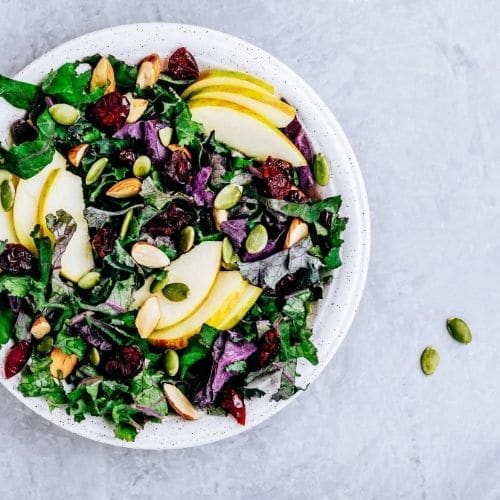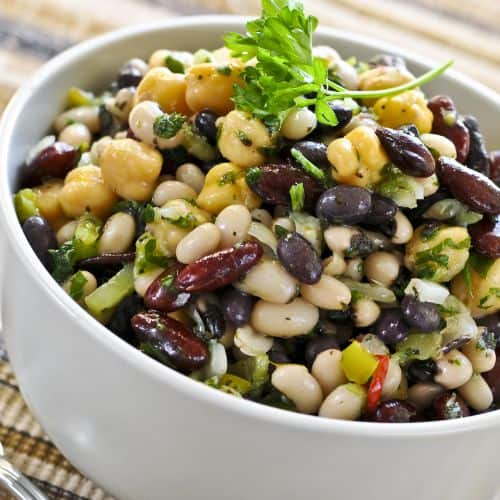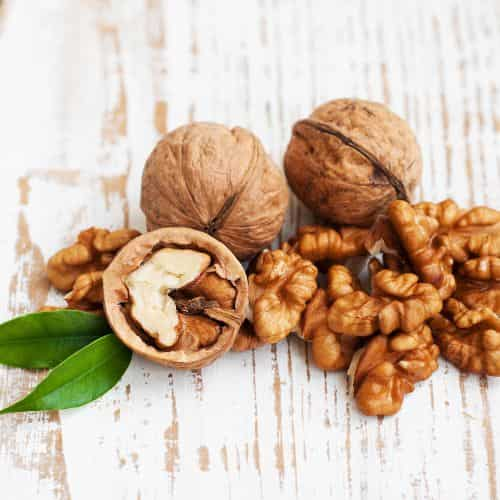15 Foods to Increase Progesterone Naturally
Progesterone is a sex hormone that plays an important role in regulating women’s menstrual cycle and early pregnancy.
Table of Contents
ToggleThis sex hormone decreases as women approach menopause, and this decline can contribute to many symptoms, including hot flashes, night sweats, and weight gain.
Low progesterone levels are also linked to mood changes, increased anxiety and depression, and difficulty sleeping.
Furthermore, an imbalance of the levels of progesterone to estrogen can lead to estrogen dominance. This imbalance can worsen weight gain, bloating, irritability, mood swings, and other symptoms of menopause.
Finally, it is vital to maintaining cognitive function, bone health, bladder function, fluid balance, and more.
You don’t necessarily need to look to drugs to take advantage of the benefits of progesterone. There are natural ways to boost the levels of progesterone levels in your body.
Foods to Increase Progesterone

It’s important to clarify that foods do not contain progesterone. However, some foods can help stimulate progesterone production in the body, and others can help balance estrogen and progesterone.
While there is not yet enough research to say with certainty that these foods will boost progesterone, they do offer wide-ranging benefits to improve the body’s ability to produce it.
Avocados
Avocados contain healthy fats that serve as building blocks for hormones, including progesterone.
Beans

Beans contain protein, fiber, and zinc. Fiber can help reduce estrogen levels, creating a better balance between estrogen and progesterone.
Zinc plays an important role in supporting cell function and division, increasing the production of the follicle-stimulating hormone (FSH), which is important in producing sex hormones in general. It’s also a crucial mineral for immune function that can naturally increase progesterone levels.
Broccoli
Broccoli contains a compound called indole-3-carbinol, which helps support the body’s use and excretion of estrogen for more balanced hormones.
Brussel Sprouts

Brussels sprouts also contain indole-3-carbinol.
But they also have 3,3’-diindolylmethane (DIM), a compound that enhances estrogen metabolism in the body and potentially prevents a hormone imbalance.
Chicken
Chicken is rich in vitamin B6, which helps promote reproductive system health. Research has shown that B6 supplements can increase progesterone levels and lower estrogen in the body.
Citrus Fruits

Citrus fruits such as oranges, lemons, and limes contain high amounts of vitamin C, a vitamin that helps increase progesterone levels in women.
One study found that women who took 750 milligrams of vitamin C per day had their progesterone levels increase by 77%.
Dark Chocolate
Dark chocolate has magnesium, a nutrient that can help lower estrogen levels in the body, to improve the estrogen-progesterone balance.
Grass-Fed Beef
Estrogen is commonly administered to animals to promote faster growth. When you consume meats that contain these additives, it can create estrogen dominance in your body, leading to decreased progesterone production.
Grass-fed organic beef is not pumped with hormones like other meat products. Therefore, switching to only grass-fed organic meat will lower your overall estrogen levels and — you guessed it — will increase progesterone levels.
Nuts

Nuts have essential fatty acids such as omega-3 and omega-6.
They also contain magnesium, which normalizes the action of progesterone on your central nervous system.
Peppers
All peppers — but particularly bell peppers — contain vitamin C. As mentioned before, this vitamin can help increase progesterone levels naturally. Red and yellow peppers even have more vitamin C than oranges!
Pumpkin
Pumpkin is rich in vitamins A and B, but most importantly, vitamin B6. Vitamin B6 is another essential for the development of the corpus luteum in women’s reproductive health. Pumpkin soup, pumpkin bread, or even a pumpkin-based pasta sauce can improve your progesterone levels.
Salmon

Salmon contains a large amount of omega-3 fatty acids.
This healthy fat is known to raise levels of luteinizing hormone, leading to increased progesterone levels in the body.
Shrimp
Shrimp also contains zinc. What’s more, shrimp is a high-quality source of the amino acid l-arginine.
This amino acid promotes blood circulation and supports a part of women’s reproductive systems called the corpus luteum. The corpus luteum is responsible for creating progesterone.
Spinach

Spinach is rich in magnesium. Magnesium plays a significant role in maintaining hormonal balance by blocking the binding of a neurotransmitter to NMDA receptors. This action regulates your sleep.
Therefore, incorporating magnesium in your everyday diet may make it easier to fall asleep and improve your sleep quality. Getting adequate sleep is beneficial for maintaining your hormonal balance.
Whole Grains
Whole grains are filled with fiber and vitamin B. This nutrient is necessary in women for the stimulation of follicles to release a healthy egg, and it maintains the levels of progesterone in the body.
Fiber can help reduce estrogen levels, leading to progesterone working more efficiently in the body.
Other Ways to Boost Progesterone Naturally
Eat Organic When Possible
The foods and drinks you consume have an effect on your hormonal balance. Meats, fruits, and vegetables that are non-organic and are not labeled “hormone-free” might contain a byproduct known as xenoestrogen.
This byproduct is an environmental hormone that imitates the effect of estrogen in your body. This leads to an overload of estrogen, which causes a decrease in progesterone due to estrogen dominance.
Limit or Avoid Alcohol
Alcohol can have a significant impact on hormonal balance. If you consume large amounts of alcohol regularly, it can alter how your body produces estrogen. Heavy drinking can decrease your progesterone levels while raising your estrogen levels.
To support a healthier estrogen-progesterone balance, try reducing your alcohol intake by choosing a mocktail over a cocktail during a night out.
Limit Caffeine
Coffee and energy drinks contain large amounts of caffeine. Caffeine can cause estrogen levels to rise by 70%. Instead of coffee every morning, try herbal tea. Herbal teas contain much less caffeine and have the benefit of antioxidants to boost your immune system.
Manage Stress
When you’re stressed, your body produces two stress hormones: cortisol and adrenaline. Your body uses progesterone to create cortisol, creating an imbalance of estrogen and progesterone in your body as the progesterone levels decline rapidly.
Managing stress is important in maintaining hormonal balance. Try exercising, meditating, or taking a yoga class to reduce stress levels naturally.
Maintain a Healthy Weight
Your weight and body fat percentage have a significant impact on hormone balance. Hormones are made from lipids, the broken-down component of fat.
If you become underweight, your body goes into survival mode and starts using fats and nutrients to keep your body alive instead of producing reproductive hormones.
On the other hand, if you are overweight and have a high body fat percentage, your fat cells produce more estrogen than is necessary.
Progesterone levels do not also increase with increased fat cells, leading to an imbalance of reproductive hormones. In addition, the estrogen dominance from increased body fat causes a decreased production of progesterone.
The Bottom Line
There is no one food or diet that can balance your hormones. However, a healthy diet rich in these specific foods can help you balance your hormones as much as possible.
Keep in mind that foods do not contain progesterone, but rather they can stimulate the production of progesterone in your body for better health overall.
“15 Foods to Increase Progesterone Naturally” was written by Su-Nui Escobar, DCN, RDN, FAND, in collaboration with Registered Dietitian Meagan Murphy.

Dr. Su-Nui Escobar, a Registered Dietitian/Nutritionist in Miami, FL, is dedicated to empowering women in perimenopause and menopause to live healthier, more satisfying lives.
With a doctorate in clinical nutrition from the University of North Florida, she has expertise in menopause and weight loss, including the unique challenges faced by those on weight loss medications.
Su-Nui’s passion for her field is evident in her previous role as the Academy of Nutrition and Dietetics spokesperson.


